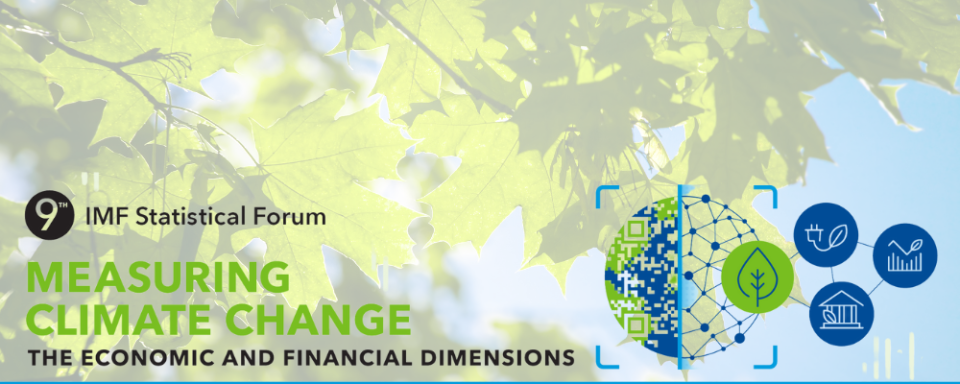Measuring climate change: IMF 9th Statistical Forum

The IMF held its 9th Annual Statistical Forum on November 17-18, 2021, with a focus on the measurement of climate change and its economic and financial dimensions.
The Forum highlighted the urgent need to strengthen the climate information architecture, recognizing that effective climate policy action must be grounded in accurate and reliable indicators. The speakers agreed on the three building blocks needed to support this: (i) high-quality, comparable and timely indicators; (ii) a harmonized and consistent set of climate disclosure standards; and (iii) a broadly agreed-upon global taxonomy. This taxonomy must be flexible enough to recognize the complex efforts taken by companies to transition to a climate-sustainable business model. It was reiterated that the statistical community has the responsibility of integrating climate change data into international statistical standards and making the resulting data available to the public.
Over the two-day conference, sessions focused on the economic, cross-border, and financial dimensions of measuring climate change; country cases from the US, Mexico, and Colombia; and international efforts to close climate data gaps by international organizations and policymakers. The updated Climate Change Indicators Dashboard, launched by IMF in April 2021, was showcased in the Forum. The IMF dashboard includes several indicators derived from the System of Environmental-Economic Accounting (SEEA) and uses global SEEA databases as a data source. The Dashboard is a product of close cooperation with other international organizations and institutions – the OECD, the World Bank Group, the United Nations Statistics Division, the European Commission, Eurostat, the Food and Agriculture Organization, the International Energy Agency, and the National Oceanic and Atmospheric Administration, among others. The close cooperation maximizes synergies with other existing climate-related workstreams while avoiding duplication, and leverages the Fund’s leadership in relevant statistical methodologies.
While highlighting the progress in bridging data gaps, the presentations also revealed that more work still needs to be done. Experts emphasized that it is crucial to continue to develop statistical standards and methodologies, building on the existing statistical macroeconomic frameworks, including the SEEA, the System of National Accounts, and the Balance of Payments and International Investment Position Manual. An equal emphasis was also laid on ensuring consistent, timely, and uniform implementation of internationally agreed sustainability reporting standards are necessary.
During the Forum, participants including policymakers, experts, academics, statisticians, private sector executives, and international organizations actively deliberated on the statistical strategies to close the data gaps on the economic and financial dimensions of climate change, including its cross-border implications. The Forum culminated with Professor Johan Rockström, Director of the Potsdam Institute for Climate Impact Research, presenting the key take-aways from his impressive research on planetary boundaries, featured in a fascinating recent Netflix documentary. Professor Rockström’s keynote speech was followed by an inspiring conversation with the IMF’s Managing Director, Kristalina Georgieva.
Recordings, presentations and papers are available at https://www.imf.org/en/News/Seminars/Conferences/2021/11/17/9th-statisti...
